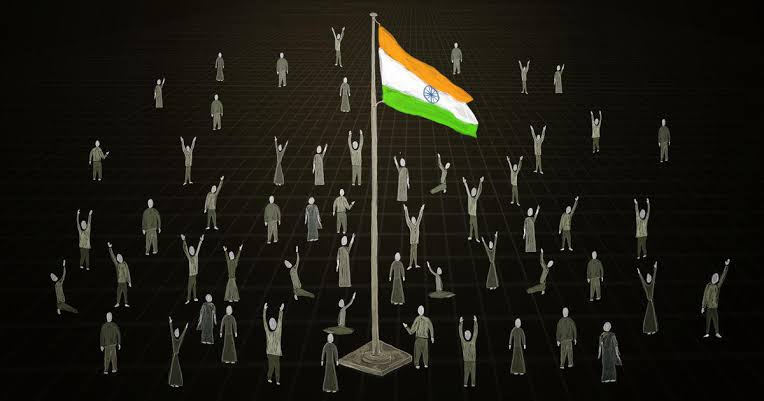. India ‘one of the worst autocratisers’: V-Dem report on democracy

- 12 Mar 2024
Why is it in the News?
India, which was downgraded to the status of an “electoral autocracy” in 2018, has declined even further on multiple metrics to emerge as “one of the worst autocratizers”, according to the ‘Democracy Report 2024’ released by the Gothenburg-based V-Dem Institute that tracks democratic freedoms worldwide.
About V-Dem (Varieties of Democracy):
- The V-Dem Institute, established in 2014 by Swedish political scientist Staffan Lindberg, is a research institution dedicated to studying the various forms of democratic governance around the world.
- Headquartered at the University of Gothenburg in Sweden, V-Dem produces several high-profile datasets that assess the qualities of different governments based on hundreds of indicator variables.
- These datasets are widely used by political scientists due to their comprehensive coverage of various aspects of government and are freely available to the public.
- V-Dem's annual publications provide valuable insights into the functioning of governments worldwide, promoting transparency and understanding of democratic institutions.
About The Democracy Report:
- The Democracy Report presents a comprehensive analysis of the state of democracy worldwide, with a particular focus on the trends of democratization and autocratization.
- The report classifies countries into four distinct regime types based on their performance on the Liberal Democracy Index (LDI): Liberal Democracy, Electoral Democracy, Electoral Autocracy, and Closed Autocracy.
- The LDI is a composite index that encompasses both liberal and electoral dimensions of democracy.
- It is based on 71 indicators, which are grouped into the Liberal Component Index (LCI) and the Electoral Democracy Index (EDI).
- The LCI assesses various aspects of individual and minority rights, as well as legislative constraints on the executive.
- The EDI evaluates the extent to which elections are free and fair, considering factors such as freedom of expression and association.
- In addition to the LCI and EDI, the LDI also incorporates three other component indices:
- The Egalitarian Component Index (measuring social group equality)
- The Participatory Component Index (assessing the vibrancy of citizen groups and civil society organizations), and
- The Deliberative Component Index (evaluating whether political decisions are based on public reasoning or emotional appeals, solidarity attachments, and coercion).
- The Democracy Report, along with the underlying dataset, scientific articles, and working papers, is publicly available for download on the V-Dem Institute's website.
- The website also offers interactive graphic tools to facilitate the exploration and visualization of the data.
Key Insights from the Democracy Report 2024:
- The Democracy Report 2024, a collaborative effort involving 4,200 scholars from 180 countries, draws from 31 million datasets spanning 202 countries from 1789 to 2023.
Global Trends:
- In 2023, 42 countries (home to 35% of the world’s population) experienced autocratization.
- Autocracies now encompass 71% of the world's population, up from 48% a decade ago.
- The overall level of democracy has regressed to 1985 levels for the average global citizen.
- Eastern Europe, South, and Central Asia witnessed the most significant decline in democracy.
- Freedom of expression, clean elections, and civil society engagement were the most affected aspects in autocratizing nations.
Focus on 2024 Elections:
- Of the 60 countries holding elections in 2024, 31 are experiencing democratic backsliding.
India's Situation:
- India, classified as an electoral autocracy since 2018, has further deteriorated, earning the title of "one of the worst autocratizers."
- The report notes that India's level of liberal democracy has plummeted to levels comparable to those during the 1975 emergency declared by Indira Gandhi.
- Under the V-Dem classification, a liberal democracy requires robust mechanisms for judicial independence, checks on executive power, and strong protection of civil liberties and equality under the law.
- India currently falls into the category of electoral autocracy, characterized by multiparty elections but lacking adequate freedom of expression and fair electoral processes.
